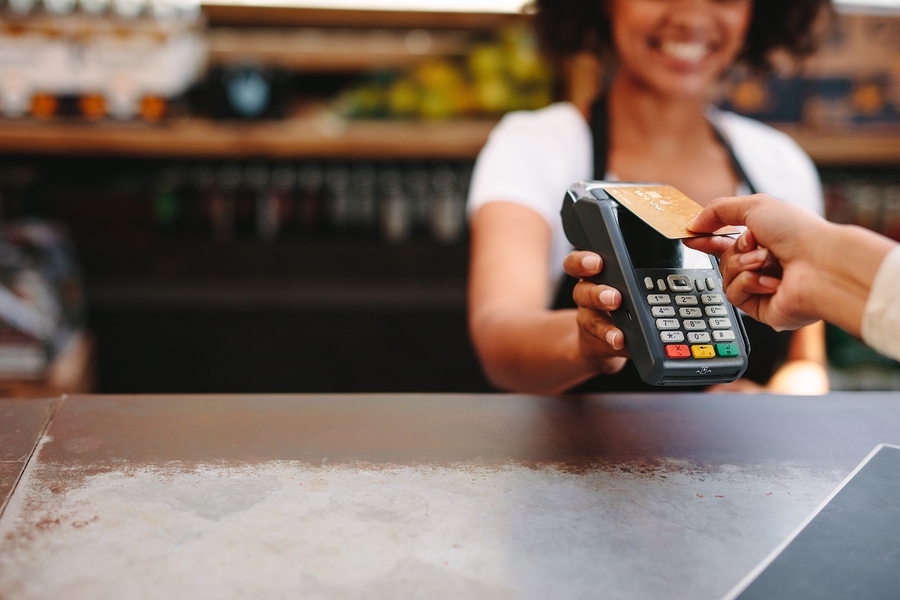Compare Mobile Card Payment Machines
We here at Business Quotes have put together our very own card machine comparison guide, covering everything you need to know about some of the most popular card machines on the market, the shared benefits they bring to your business and the differences between them.
The Rise of Mobile Card Payment Machines
Allowing your customers to pay for your services using a credit or debit card is commonplace in most businesses. In the 21st century, card machines are no longer a luxury for large national companies and are widely recognised as methods of payment by even smaller retailers and businesses.
One of the many benefits that card payments have over cash payments is the fact that they’re easy for both the customer and the merchant. The simplicity of making a payment with a credit card can often make customers more willing to part with their money and buy goods and services.
The demand for mobile card payment machines has exponentially increased over the past few years, from the days of the clunky chip and pin terminal until now. There are a huge range of different businesses that offer card payment machines and card readers with much more affordable options, making them great for small and large businesses alike.
Mobile card payment machines are a great way to be able to take payment remotely or away from a main till system. One of the benefits of this machine type is that many can be integrated with apps which allows you to manage your payments with total ease.
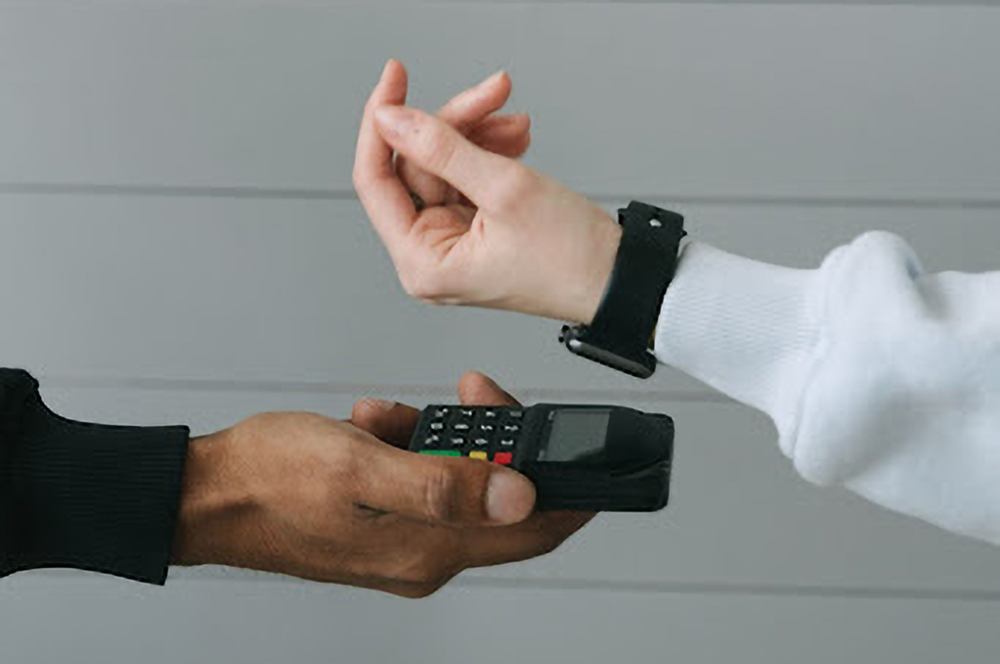
Another great benefit of mobile payment machines is that transaction fees are determined by the payments you take and there are no monthly fees involved, meaning you only need to purchase the machine. The fees are determined by the provider you choose to go with.
So, how do you find the best card reader? In order to compare card machines, you’ll need to understand a little more about how they work and the ways in which they can improve your business’ efficiency. Read on to learn more in our expert card machine comparison guide.
How Do Mobile Card Payment Machines Work?
Mobile card payment machines work by linking up with a smartphone or tablet via Bluetooth. These devices must have an internet connection in order to work, either WiFi or 3G/4G/5G. Usually with these mobile card payment machines, you will need to install an app onto the smartphone or tablet which is used as a way to control the card machine. The customer simply needs to tap their contactless card or enter their chip and pin to make a payment.
The Benefits Of Comparing Mobile Card Payment Machines
To be on the safe side, you should avoid the temptation to pick the first mobile card payment machine you come across. It’s much better to explore the market fully and compare portable card machine quotes first. Differences between products could have a significant impact on your operations.
Pricing is the main variable to consider when you compare card payment machines. Some branded mobile payment devices are exceptionally affordable while others are more expensive. What’s more, it’s not always clear why. They each offer similar functionality and support. Therefore, you should always check what you are getting in advance.
You should also compare mobile card payment machines to make sure they can provide your business with adequate service. Ideally, you want devices offering relevant features for your industry. Manufacturers develop machines for
- Art dealers
- Bars and restaurants
- Electricians
- Mobile salespeople
- Takeaways
- Builders
- Fast food establishments
- Pubs
- Tradespeople
- Crafting professionals
- Florists
- Plumbers
- Bakeries
- Driving schools and photographers
Usually, they will tell you whether their products are suitable for your industry on their home page, or direct you to models offering all the features you need.
You should also consider other features. At a minimum, you want mobile card payment machines with GPRS technology for payment processing, roaming SIMs, and certification to industry security standards. As a paying customer there is nothing more infuriating than your card payment not being taken because the person you are paying not being able to connect to the network. Additional touches include things like contactless technology for Apple, Google and Samsung Pay, a fast and reliable interface, and a colour screen. Those taking payments in the field should also get devices offering a long battery life. You want a reader that will remain operational for at least 10 hours before you need to recharge it.
Support is also a critical consideration. Avoid vendors that charge hidden fees. Look for providers who are upfront and honest about their cut. Also, find brands that make it easy to switch. You don’t want to get locked in a particular firm’s ecosystem for life where they can charge whatever they want. Failing to compare what’s out there can lead to disappointment.
What Different Mobile Card Payment Machines are Available?
PayPal Here

Most business owners and consumers will be familiar with PayPal. The PayPal Here card reader is a mobile card payment machine that accepts all forms of card payment, including contactless, chip and pin, swiping and signature payments. This makes it a great option for all payment preferences.
If you have a PayPal business account, you can link your card reader to your account which creates an all in one space for you to manage all the payments you take.
Having a PayPal account is integral to this mobile card payment machine as, unlike other readers, the funds will be delivered directly into your PayPal account rather than your bank account.
iZettle Reader
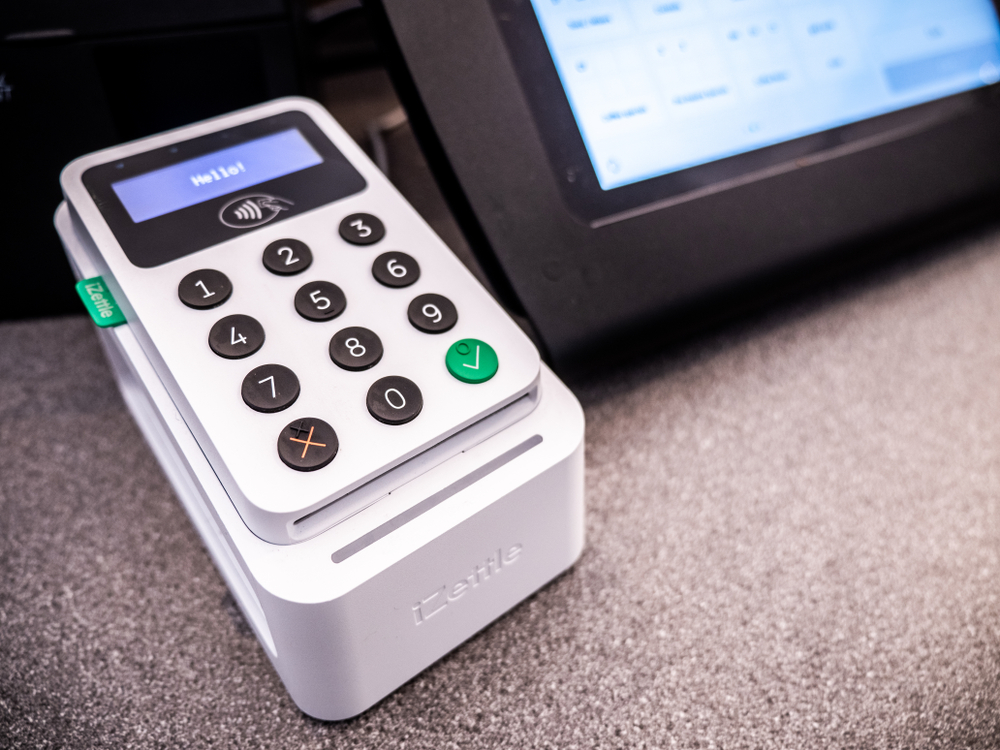
iZettle Reader is arguably the leading mobile card payment machine provider offering app-based card machines in the UK. It has no setup fee and has fantastic customer ratings.
Signing up for an iZettle Reader includes visiting their website and enter your details. Once a credit check is completed, you can begin using the machine. It is a very versatile machine that accepts all kinds of card payments, including foreign cards and premium cards.
It takes around 1-2 days for a payment via iZettle to appear in your bank account. Refunds are also simple to do through the iZettle app.
SumUp Air
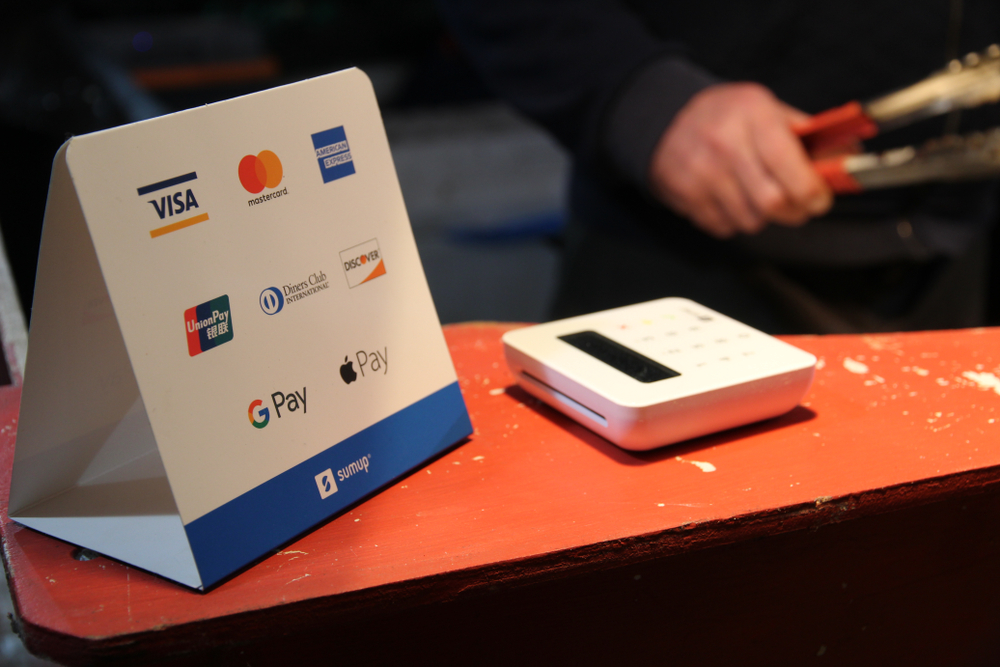
Regarded as one of the most economical mobile card payment machines in the UK, SumUp Air is an app-based card machine that is perfect for small businesses on a budget. It has very low transaction fees and has no extra setup costs, just the initial cost of the product and the transaction fees.
SumUp Air accepts most major card payment methods, with the exception of being able to swipe which is accepted by other mobile card payment machines.
A free payment app is also provided by SumUp, making it easy to customise your transactions and monitor them. Like many other mobile card payment machines, the device connects to your smartphone or tablet via Bluetooth for total ease.
Square Reader
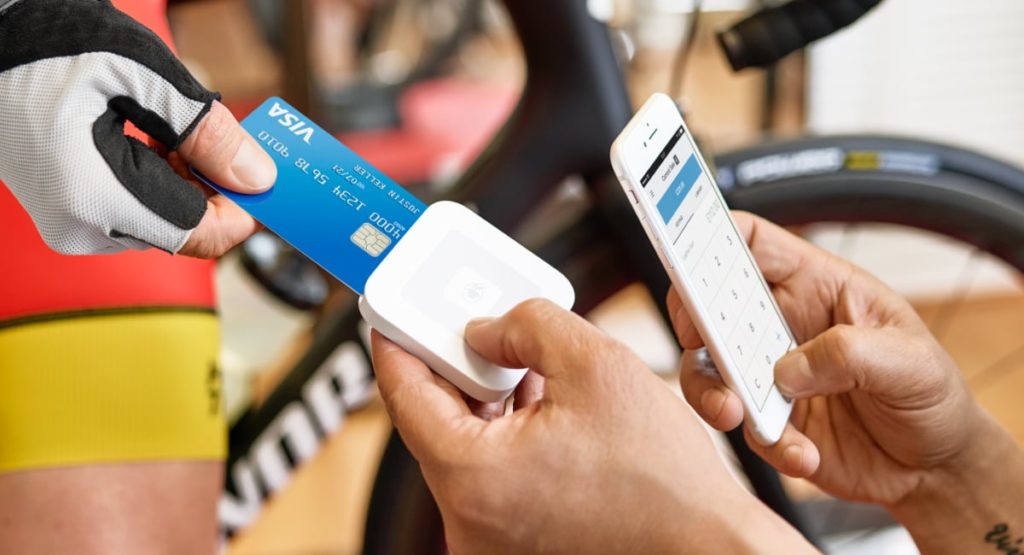
This is the smallest and lightest mobile card payment machine. Where it is so small, it makes it the most convenient device to transport, so small it would fit in your pocket with ease. Unlike the other mobile card payment machines, it does not have a chip and pin system, meaning it will only accept contactless. However, if a pin is required, a customer can enter this on the payment app that comes with the device.
The Square Reader accepts all major credit cards and has one of the most comprehensive payment apps available from a free card payment app.
Dojo

The Dojo card reader is fairly run-of-the-mill in terms of pricing. However, it’s a good choice for traders and merchants who want to avoid commitment.
Dojo markets primarily to sole traders and wholesalers. Its unique selling point is its next-day payouts which are greater for anyone who operates by themselves and wants to keep their cash flow healthy.
Switching to Dojo machines is relatively easy. The brand is willing to pay up to £3,000 towards exit fees charged by your old provider if you make the switch. It also eliminates long-term contracts. You pay by the month on a rolling basis instead.
Dojo’s device is attractive, similar to other readers on this page. However, it lacks some business features you might need. Pricing might also disappoint firms looking for a bargain. Dojo charges 3.85p authorisation charges on all transactions and insists on a minimum monthly service charge of £40.
Shopify POS
As you might expect, the Shopify POS is ideal for anyone who operates one of the brand’s eCommerce websites. The device easily integrates into your store with basic services included on all plans.
Credit card rates start from as low as 1.5% (and no additional flat rate), and if you upgrade from the Lite to Pro Plan, you get an abundance of features and reporting tools. Depending on how you use the device, there may be an ongoing cost. However, thanks to seamless integration, most store owners think it’s a good deal.
Of course, the downside is that the device is not particularly helpful for people who don’t have a Shopify account. It’ll still work, but the utility is lacking and it’s not clear why you would say no to other machines in this list.
Barclaycard Anywhere
Barclaycard Anywhere looks like a simple device, but it has helped thousands of small businesses since its introduction several years ago. It’s useful because it works anywhere, as the name suggests, making it the perfect option for mobile traders and seasonal sellers.
Setting up Barclay’s device is relatively straightforward. All you need is a compatible phone or tablet. Once everything is done, you can get real-time payment reports and send digital receipts to customers by email. You don’t get as many options as some of the other readers on this list, but that’s not what Barclays was going for with this device. They deliberately made something simple that any trader could use.
Fees are reasonable, too. Barclaycard Anywhere charges 1.6% on credit card transactions, a one-off £29 rental fee, and a flexible pay-as-you-go contract. The nice thing about this pricing structure is you only pay for the services you consume, helping to avoid those high sunk costs which come with many other machines.
MyPOS Go
MyPOS Go is a relative newcomer to the UK point-of-sale market, but it is making an impression already. Its devices look a little old-school, but that’s okay because of the enormous feature set you get in return.
MyPOS, for instance, is small enough to put in your pocket and lightweight. It lets you send digital and SMS receipts. And you get a free data SIM card included in your bundle, making it easy and affordable to get started.
New users benefit from a free e-money merchant account that works across 14 currencies, and quick access to accepted funds. You also get some nice guarantees, including the ability to get your money back for any reason within 30 days, and a one-year warranty on technical mishaps.
Value is a factor, too. MyPOS Go is unbelievably cheap at £39 + VAT for the handset itself. (The firm sells other versions which are significantly more expensive and come with barcode scanners). The firm charges 1.10% + 7p for UK and EEA transactions on consumer cards, and 2.85% + 7p for commercial cards. The fee structure for card-not-present transactions is a little bit more costly, but you can still arrange payments this way.
Overall, MyPOS is a good option for those looking for an all-in-one payment solution. You shouldn’t need to upgrade in the future.
Revolut Reader
Merchants looking for a stylish, minimalist solution might want to check out the Revolut Reader. This classy device is one of the latest additions to the market and comes with some exceptionally low fees which will appeal to bargain hunters.
Key features include simple pay-per-transaction pricing and next-day fund availability. You also get integration with the Nobly POS, a cloud-based back office suite which makes backend processing more efficient.
The pricing of the reader itself is reasonable at £49 + VAT and fees are lower than most of the other credit card machines listed here. Revolut charges 0.8% + 2p for in-person UK consumer cards, 1.0% + 2p for UK online consumer card purchases, and significantly higher fees for international transactions. You don’t have to take out a contract with the company to use its portable card machine, but you do need to be a business banking customer.
This option is ideal for merchants looking for a low-cost card reader. Accessories, though, are limited.
Tyl
Tyl is Natwest’s card payment machine and, like its authentication card readers, it isn’t the most elegant of devices. The unit weighs an enormous 453 grams. That’s nearly a pound!
There’s a reason for this, though: it’s one of the most powerful mobile card payment machines on the market. The UK banking giant packs it full of helpful and innovative features, designed to make your life a breeze.
You should think of Tyl as an all-in-one merchant account that lets you manage inventory, payments and staff from a single system. The device and surrounding architecture offer multiple payment methods, including PayPal and Square. You also get access to the reporting tool, Takepayments.
On the plus side, Natwest gives you an all-in-one POS with long battery life and payment settlement within one working day. However, on the downside, transaction fees are expensive at 0.2-3.5% + £0.20-£0.40. Therefore, it’s best for big-ticket sellers and those who shift products at volume, not smaller retailers.
Worldpay
Lastly, you might want to consider Worldpay, a maker of multiple mobile card readers. The brand is not well-known in the UK but it is becoming more popular due to its unique service offering.
Businesses that use the firm can choose between two card readers: the Ingenico Desk/5000 and the Ingenico Axium DX8000. The first is a countertop device designed for stores and other outlets, while the latter is mobile and comes equipped with WiFi for table service.
Worldpay equips its devices with significant fraud protection and PCI compliance. You also get access to a range of plans, offering flexibility compared to other payment providers.
Unfortunately, the cost can be high, which means that Worldpay is not the best card payment machine for smaller businesses. You’ll have to fork out 2.75%+20p on all transactions plus a monthly charge of £49.99. You can also get custom plans that lower device fees but raise transaction costs further.
Regardless of how much you use your Worldpay mobile payment device, you also need to pay a regular monthly £15 fee. Worldpay uses this to meet the fixed costs of providing its service.
In return for all this expense, though, you get a lot. Worldpay offers more than 100 integrations, way more than any other provider on this list. And you get 24/7 phone support. If there’s a problem, you can just call, so there are benefits to choosing this service.
Compare Mobile Card Payment Machine Prices
If you are looking to get a better idea of the cost of a mobile card payment machine and to get a more in-depth card machine comparison, the team at Business Quotes can help. We compare card machine quotes across multiple services for all kinds of businesses in the UK, helping you take the hassle out of finding the best option for you.
Get your free mobile card payment machine comparison today.
Categories: Advice, Merchant Accounts


